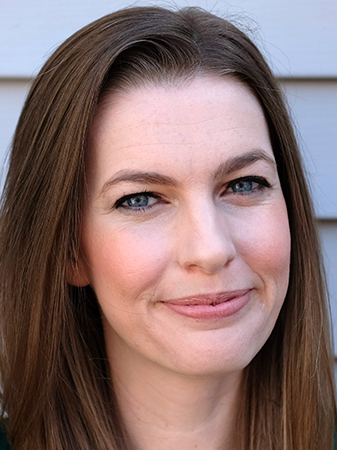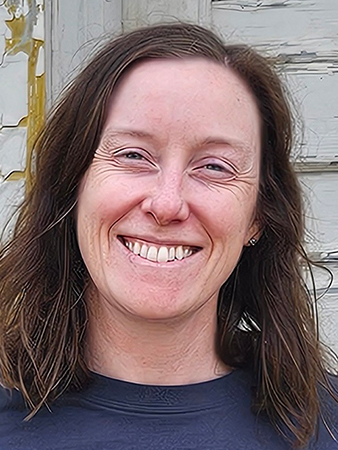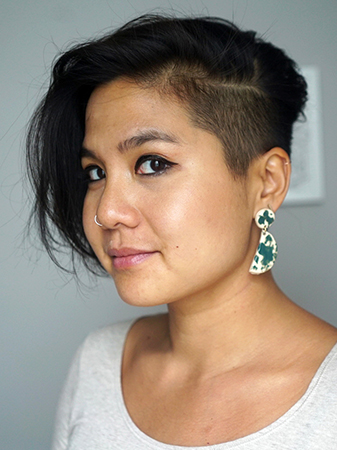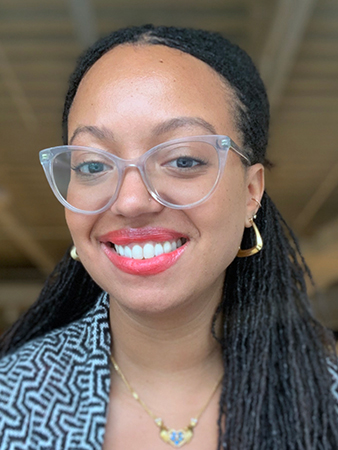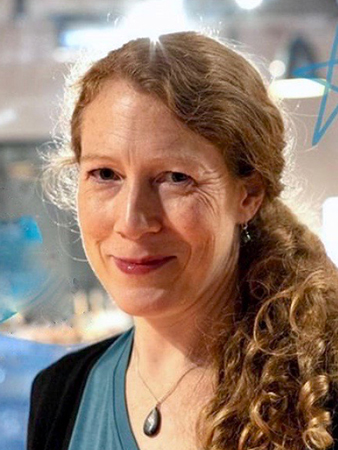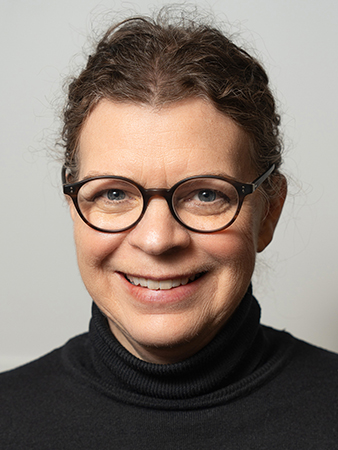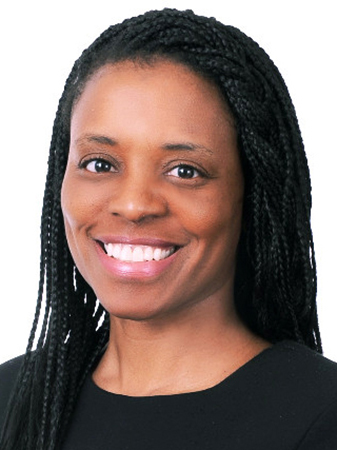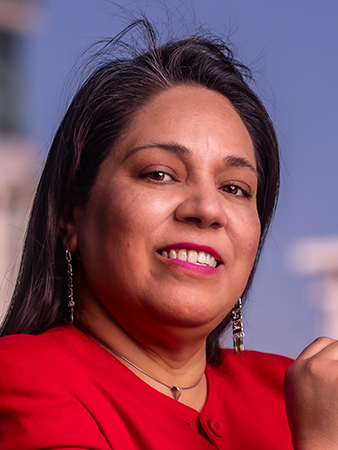Introducing the 2025-2026 RJI Fellows
The Reynolds Journalism Institute at the Missouri School of Journalism has announced the 2025-2026 class of RJI Fellows, who will work to create and test free, open-source resources for journalists and community newsrooms.
Over the course of eight months, the Fellows will build practical solutions designed to address industry challenges in accessible and adaptable ways, adding to a growing collection of easy-to-implement resources. This year, those solutions range from a platform that will make journalism funding opportunities more accessible to a suite of tools and guides for newsrooms with nontraditional models of structure, employment, policies and more.
“The Fellows are working on nimble, practical solutions that newsrooms can adopt and adapt, even if they have a tight budget and limited staffing,” said Randy Picht, executive director of RJI. “I can’t wait to see these projects create positive impacts in the industry.”
Fellows receive $25,000 stipends and can complete the fellowship remotely, either as an individual or on behalf of an institution.
This year’s class will also feature a residential fellow for the first time since the 2020-2021 fellowship cohort. Rebecca Ritzel will spend a full year onsite at RJI in Columbia, Missouri, where she will collaborate with students and staff at the School of Journalism to build and test resources aimed at supporting and funding coverage of the arts. She will receive up to $100,000 for project expenses and a $5,000 monthly stipend.
“Rebecca is not only building a resource that will help newsrooms discover funding opportunities, but she is going to launch a non-profit that will bring in and distribute funding for newsrooms to serve their communities,” said Kat Duncan, director of innovation at RJI. “We’re excited to support her while she works at RJI on this ambitious and much needed initiative.”
Meet the 2025-2026 RJI Fellows
Sarah Blesener and Jennifer Jacklin-Stratton
Blesener and Jacklin-Stratton will create an iterative, open-source toolkit. Enter/Exit: Trauma-Informed Praxis for Visual Journalism is designed to equip independent journalists and local newsrooms with tools and frameworks for ethical reporting on trauma’s aftermath and visually representing witness testimony with dignity, care, and collaboration. This resource will aim to center survivors’ voices, promote collaborative storytelling, and prioritize the well-being of participants and journalists through inclusive strategies, educational materials, and innovative distribution methods.
“We want to help contribute towards a media environment where care, dignity, and agency are not afterthoughts, but the foundation,” Blesener said.
“Local journalists—who are often closest to the communities they cover—and are often working with limited resources and support,” added Jacklin-Stratton. “We hope to help close that gap and develop resources that support not only more nuanced, in-depth journalism, but healthier journalists too.”
Tara Francis Chan
Chan will build tools that support newsrooms with innovative and nontraditional structures, processes, and policies as well as amplify their best practices to the journalism industry at large. These tools will include a comprehensive database of nontraditional newsrooms; a guidebook for news startups on nontraditional newsroom models (such as worker-led nonprofits, worker-owned cooperatives, nonhierarchical structures, co-leadership, etc.); and a resource of innovative insights, lessons, and policies from nontraditional newsrooms that can be adopted by both nontraditional and traditional newsrooms to address operational gaps.
“In 2021, I co-founded a non-traditional newsroom, and while launching any news startup is a daunting task, building an entirely new business and internal operating structure only added to the mountain we needed to climb,” Chan said. “I’m incredibly excited to use this fellowship to build the tools and resources I wished had existed in those early days.”
Cara Kuhlman (Future Tides)
Kuhlman is the founder of Future Tides, which, according to its website, “covers how people work, play and live on the Pacific Northwest’s waterways.” She will build a digital guidebook to help newsrooms engage in walking tours as a medium for local journalism. It will include a framework to help local publishers assess if tours are a good fit, the basics for getting started, and models for how to leverage tours for funding, audience engagement and impactful reporting.
“In many ways, local journalists are already tour guides, so I’m fascinated about taking that a step further in a way that strengthens local news,” Kuhlman said.
Nicole Lewis and Lam Vo
Lewis and Vo will build a resource to help local journalists boost civic engagement by developing and implementing a theory of change for their work. Through a theory of change, journalists will be better equipped to make decisions about who they most need to reach and how, in order to have the biggest impact.
“When it comes to effectively reaching disengaged people on or offline or figuring out how to generate the most impact with limited resources, journalists have a lot to learn from organizers who work tirelessly to reach people at the margins,” Lewis said. “A theory of change is one of those key tools.”
“It’s so important for us journalists to think more deeply what the purpose of our work is, who it is for and how we best engage those folks,” Vo added.
Rebecca Ritzel
Ritzel will develop a slate of online resources, including a state-by-state arts grant list, ethical guidance and a template for soliciting philanthropic arts funding. She will build these resources in conjunction with launching a nonprofit that will award grant funding to subsidize arts journalism projects. As a residential fellow, she will work onsite at RJI for a full year.
“Covering the arts may seem like a luxury, but it’s a service that engaged audiences expect from quality news sources. Nascent nonprofit newsrooms especially need to capitalize on this, and realize that the same people with disposable income for theater tickets are people who can fiscally support local news. There’s a symbiotic relationship at play.
Susan Stellin
Stellin will create the Toolkit for Reporting on Substance Use, Harm Reduction, Addiction, Treatment and Recovery to strengthen reporting on these topics as coverage shifts from a drug war framing to a more health-centered approach grounded in research and evidence. This toolkit will list key surveys, reports, data sets, studies, research hubs, email newsletters, and other resources that many journalists may not be familiar with, organized by category—such as drug use trends, behavioral therapies, and recovery research and services.
“When my husband was struggling with addiction years ago, we didn’t feel comfortable talking about it or know where to turn for help,” Stellin said. “There’s more openness about drugs and alcohol now, but many people are still trying to understand the complexities of harm reduction, treatment and recovery, so I’m hoping to help journalists fill that gap in their communities.”
Monica Williams
Williams is building a one-stop platform that helps U.S. newsrooms and journalists find money for reporting and journalism projects. The platform will include reporting and conference funding opportunities for staff and freelance journalists, fellowships and retreats that give them space and time to boost their work, foundation grants for newsrooms and journalists, and articles and thought leadership that addresses these and related topics. The searchable and visually appealing platform will also have a corresponding Slack channel and LinkedIn page, which will include a section with consultants and coaches for hire.
“In this time of funding cuts, journalists must collectively and strategically use our resources to continue the important work of informing the public,” Williams said. “I have been supported by a number of organizations throughout my collegiate and professional career. I believe in helping others the way others have helped me.”
Claudia Yaujar-Amaro
Yaujar-Amaro will create a modular, customizable immigration journalism platform that provides journalists with ready-made materials for immediate use. These will include story templates (how to structure an immigration story, best angles), infographics and explainer visuals (for use in news reports, digital media), ethical reporting checklists (before, during, and after covering immigration stories), interview guides (how to approach sensitive topics with migrants) and fact-checking resources (common myths vs. facts about immigration.)
“I believe that every journalist, whether or not they have a deep background in immigration issues, should have access to the tools, knowledge, and ethical guidance needed to tell these stories responsibly,” Yaujar-Amaro said.
Cite this article
Fitzgerald, Austin (2025, May 6). Introducing the 2025-2026 RJI Fellows. Reynolds Journalism Institute. Retrieved from: https://rjionline.org/news/introducing-the-2025-2026-rji-fellows/



